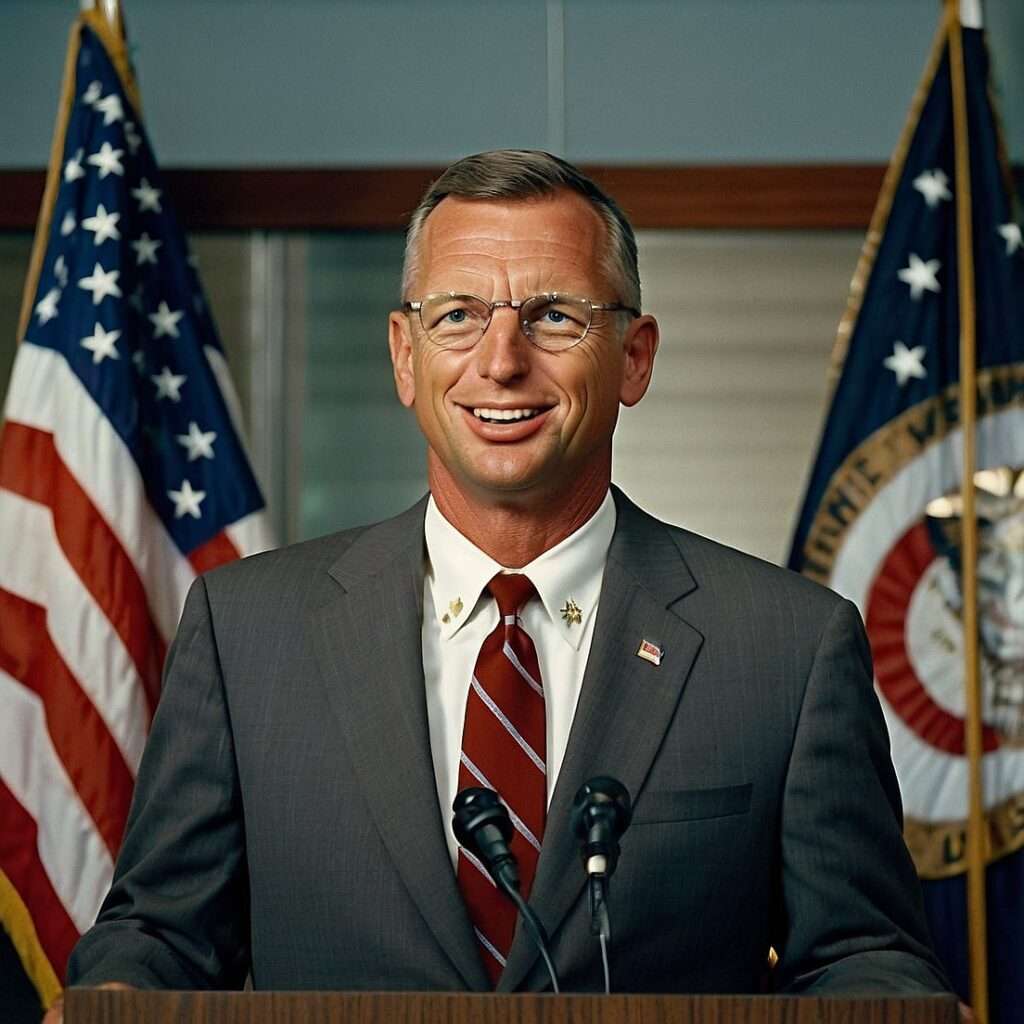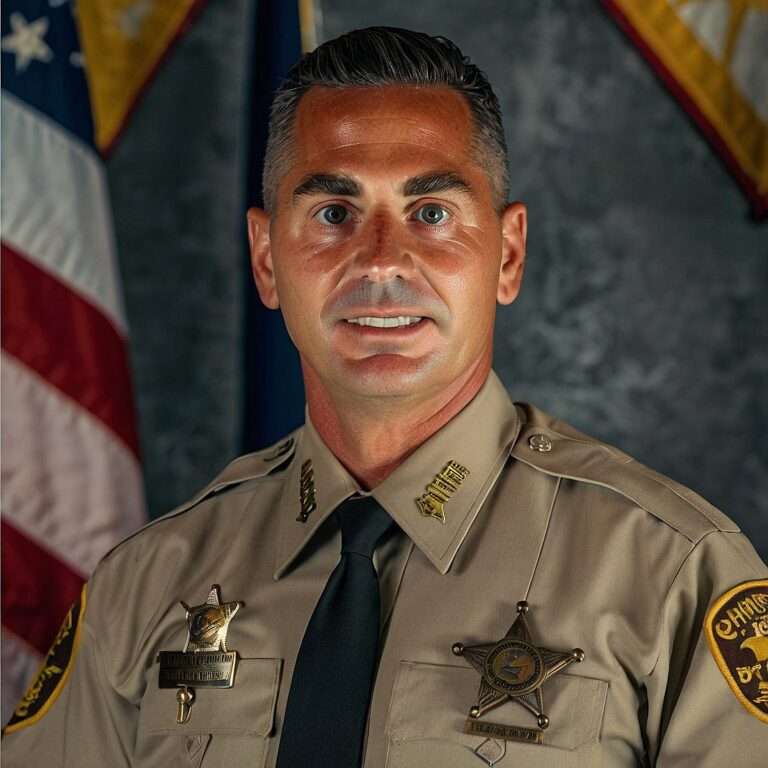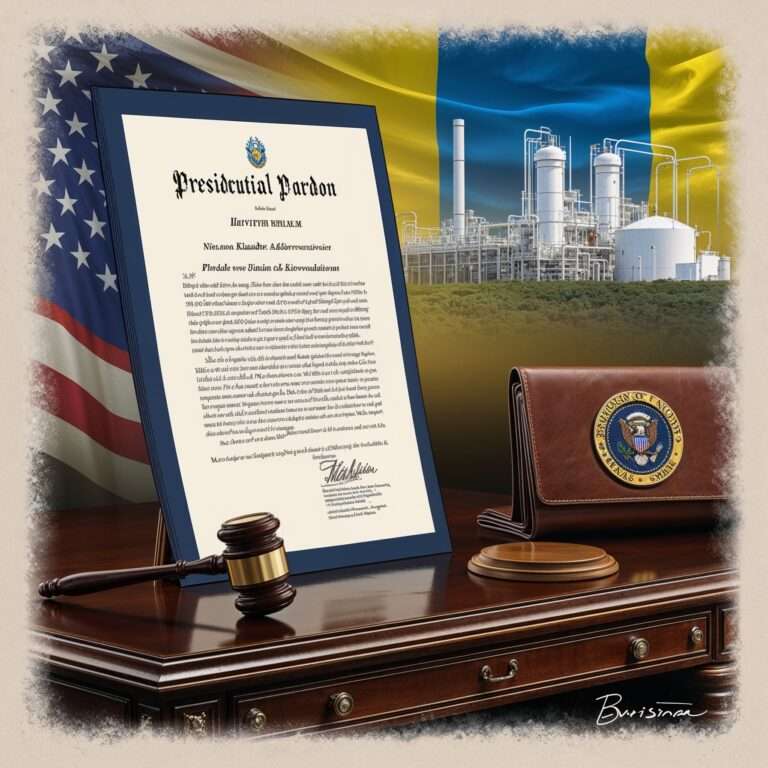
"Doug Collins speaks about his vision for modernizing the Department of Veterans Affairs and improving healthcare access for veterans across the nation."
Doug Collins, a former congressman from Georgia, has been tapped as the next Secretary of Veterans Affairs in President-elect Donald Trump’s second-term Cabinet. This nomination has sparked significant interest and debate, as Collins is known for his staunch conservative values and vocal support of veterans’ causes during his time in Congress. This article explores who Doug Collins is, why he was considered a good fit for this role, his potential vision for the Department of Veterans Affairs, and the implications of his nomination.
Who Is Doug Collins?
Doug Collins is a seasoned politician, lawyer, and pastor from Georgia who served in the U.S. House of Representatives from 2013 to 2021. Representing Georgia’s 9th Congressional District, Collins was a prominent conservative voice in the House. Before his congressional career, he served as a state legislator in Georgia and worked as a chaplain in the U.S. Air Force Reserves, where he achieved the rank of lieutenant colonel.
Collins gained national attention during the Trump administration for his staunch defense of the president during impeachment hearings. As the ranking member of the House Judiciary Committee, he became a key figure in conservative politics. His experience in public service, coupled with his military background, has made him a strong advocate for veterans.
Why He Is a Good Fit for Veterans Affairs
Doug Collins’ military service and legislative record highlight his qualifications for the role of Secretary of Veterans Affairs. As a former Air Force Reserves chaplain, he worked directly with service members, providing spiritual guidance and support. This experience gives him a unique perspective on the needs of veterans, particularly when it comes to mental health and well-being.
During his time in Congress, Collins consistently championed veterans’ issues. He supported legislation aimed at improving access to healthcare for veterans, streamlining the VA’s bureaucracy, and expanding mental health resources. His voting record demonstrates a commitment to addressing the systemic issues within the Department of Veterans Affairs.
Collins also brings a reputation for being a skilled communicator and problem solver. His ability to navigate complex legislative issues and build bipartisan support on certain initiatives may prove invaluable in leading an agency as large and multifaceted as the VA.
Potential Vision and Policies
Although Doug Collins has not yet laid out a comprehensive plan for his tenure as VA Secretary, his past statements and legislative actions offer insights into his likely priorities:
- Streamlining Bureaucracy:
Collins has previously criticized the inefficiency of government agencies, including the VA. He may push for reforms to reduce bureaucracy and improve the speed and quality of services for veterans. - Expanding Mental Health Resources:
As a former chaplain, Collins has emphasized the importance of mental health support for veterans. He is likely to focus on expanding access to counseling and therapy services to address issues like PTSD and suicide among veterans. - Improving Healthcare Access:
Collins has supported initiatives to ensure that veterans can access care outside the VA system when necessary. This “choice” approach could be a key part of his strategy to modernize the VA. - Supporting Rural Veterans:
Representing a largely rural district in Georgia, Collins has firsthand experience with the challenges faced by veterans in remote areas. Expanding telehealth services and outreach to rural communities may be a cornerstone of his policies. - Promoting Accountability:
Collins has long advocated for holding government agencies accountable. He may introduce policies aimed at improving oversight within the VA to ensure that veterans receive the services they deserve.
Reactions to the Nomination
The nomination of Doug Collins as Secretary of Veterans Affairs has elicited mixed reactions:
- Supporters praise Collins’ military service, legislative record, and personal commitment to veterans’ issues. Conservative groups and Trump allies see him as a strong, capable leader who will bring much-needed reforms to the VA.
- Critics argue that Collins lacks the administrative experience necessary to lead a sprawling agency like the VA, which serves over 19 million veterans. Some have expressed concerns about his political partisanship, fearing it could alienate key stakeholders.
Veterans’ organizations have offered cautious optimism, noting Collins’ track record while emphasizing the need for concrete actions to address the challenges faced by veterans.
Challenges Ahead
If confirmed, Doug Collins will face several significant challenges as VA Secretary:
- Modernizing the VA:
The VA has long struggled with outdated technology and inefficient systems. Collins will need to oversee large-scale modernization efforts to ensure the department can meet the needs of veterans in the 21st century. - Addressing the Mental Health Crisis:
Suicide and mental health issues remain critical concerns among veterans. Expanding access to mental health services while reducing stigma will be a priority. - Navigating Partisan Politics:
As a vocal conservative, Collins may face resistance from Democrats and moderate Republicans. Building bipartisan support for his initiatives will be essential for success. - Improving Trust in the VA:
Many veterans remain skeptical of the VA due to past scandals and inefficiencies. Collins will need to rebuild trust by demonstrating transparency and delivering results. - Balancing Budget Constraints:
With federal spending under scrutiny, Collins will need to find innovative ways to fund improvements at the VA without exceeding budgetary limits.
Why His Nomination Matters
The nomination of Doug Collins to lead the Department of Veterans Affairs is significant for several reasons:
- Veterans’ Needs: The VA is one of the largest federal agencies, and its performance directly impacts the lives of millions of veterans. Effective leadership is critical to addressing longstanding issues and improving services.
- Symbolic Value: Collins’ military background and advocacy for veterans’ issues send a message about the administration’s commitment to supporting those who served.
- Policy Direction: Collins’ nomination signals a potential shift toward conservative policies within the VA, emphasizing efficiency, accountability, and choice in healthcare.
Conclusion
Doug Collins’ nomination as Secretary of Veterans Affairs represents both an opportunity and a challenge. His military background and legislative record make him a strong advocate for veterans, while his leadership abilities and policy priorities offer hope for meaningful reforms. However, the complexities of managing the VA and addressing its systemic issues will test his skills and determination.
Ultimately, Doug Collins’ tenure will be judged by his ability to deliver results for America’s veterans. His success—or failure—will have lasting implications for the millions who rely on the Department of Veterans Affairs for support and services.
Recommended Reading on Paranoid Prophet
Explore these related articles from our Politics category to dive deeper into the themes of national division and political dynamics in the U.S.:
- Trump’s Rally Record: How His Campaigns Stack Up Against Other U.S. Politicians’ Rallies
Discover how political rallies shape public opinion and contribute to national unity or division. - What to Expect: Trump’s Likely Moves from Election Win to Inauguration
Analyze the strategies and implications of political maneuvers during transitional periods. - Why America Needs a Department of Government Efficiency—and Why Elon Musk Should Lead It
Discuss the necessity of a Department of Government Efficiency in the U.S. and propose Elon Musk as a visionary leader to spearhead governmental innovation. - Mail-In Ballots and Election Fraud: Risks, Safeguards, and 2024 Concerns
Investigating how electoral policies affect national trust, including how they intersect with issues affecting the military and veterans. - The National Divorce: Could Secession Solve America’s Deep Divides?
Explore how polarization impacts governance and public trust, offering insights into the challenges RFK Jr. would face as a reformer in public health. - Trump’s Second-Term Cabinet Picks: The Team Shaping His New Administration
An analysis of the political dynamics and implications of cabinet appointments, offering insights into the environment RFK Jr. would navigate as a potential Health Secretary.
SOURCES
- Politico: “Trump picks Doug Collins to head the VA”
This article discusses President-elect Donald Trump’s nomination of former Congressman Doug Collins to lead the Department of Veterans Affairs, highlighting Collins’ background and political career. Politico - Military.com: “Who Is Doug Collins? A Look at Trump’s Pick to Head the VA”
This piece provides an overview of Doug Collins’ military service, legislative experience, and his nomination to head the VA. Military.com - AP News: “What to know about Doug Collins, Trump’s pick to oversee veterans affairs”
This report offers insights into Collins’ background, including his time as a Baptist minister, military service, and political career, as well as his nomination to the VA. AP News - Military Times: “Trump picks former congressman Doug Collins as next VA secretary”
This article covers the announcement of Collins’ nomination, detailing his previous roles and the significance of his appointment. Military Times
FAQ: Doug Collins Veterans Affairs
General Information About Doug Collins
1. Who is Doug Collins?
Doug Collins is a former congressman from Georgia, an attorney, and a U.S. Air Force Reserves chaplain. He served in the U.S. House of Representatives from 2013 to 2021 and is known for his strong conservative values and advocacy for veterans.
2. What is Doug Collins’ military background?
Collins served as a chaplain in the U.S. Air Force Reserves, achieving the rank of lieutenant colonel. His role involved providing spiritual guidance and support to service members.
3. Why was Doug Collins nominated for Secretary of Veterans Affairs?
Collins’ experience as a military chaplain and his strong legislative record on veterans’ issues made him a prominent choice for the role. He has been an advocate for improving healthcare, mental health services, and accountability within the Department of Veterans Affairs.
Doug Collins’ Role and Vision for Veterans Affairs
4. What is the role of the Secretary of Veterans Affairs?
The Secretary of Veterans Affairs oversees the Department of Veterans Affairs, which provides healthcare, benefits, and support services to millions of U.S. veterans and their families.
5. What are Doug Collins’ stated goals for the VA?
Although a comprehensive plan has not been released, Collins has emphasized priorities like reducing bureaucracy, improving healthcare access, expanding mental health resources, and supporting rural veterans.
6. How will Doug Collins address mental health issues among veterans?
Collins is expected to expand access to mental health services, reduce stigma, and focus on preventing veteran suicide, a critical issue he has highlighted throughout his career.
7. Will Doug Collins continue the VA’s modernization efforts?
Yes, Collins is likely to prioritize modernizing the VA’s technology and infrastructure to enhance efficiency and improve the quality of services for veterans.
Reactions and Public Opinion
8. What has been the reaction to Doug Collins’ nomination?
The reaction has been mixed. Supporters praise his military background and legislative record, while critics question his administrative experience and potential partisanship.
9. How have veterans’ organizations responded to Doug Collins?
Veterans’ groups have expressed cautious optimism, highlighting his track record but emphasizing the need for meaningful reforms and actionable plans.
10. What concerns have been raised about his nomination?
Critics argue that Collins lacks the administrative experience necessary to manage a large and complex agency like the VA. Some are also concerned about his ability to build bipartisan support.
Challenges and Expectations
11. What are the biggest challenges Doug Collins will face as VA Secretary?
Key challenges include modernizing outdated VA systems, addressing the veteran mental health crisis, rebuilding trust in the VA, and navigating partisan politics to implement reforms.
12. How can Doug Collins improve healthcare access for veterans?
Collins has supported expanding healthcare options for veterans, including allowing them to seek care outside the VA system when necessary. Enhancing telehealth services is also expected to be a priority.
13. What steps can Collins take to rebuild trust in the VA?
Transparency, accountability, and delivering measurable results will be crucial. Collins may also focus on addressing longstanding complaints about inefficiency and delays in services.
Why the Nomination Matters
14. Why is Doug Collins’ nomination significant?
Collins’ appointment signals the Trump administration’s commitment to veterans’ issues. His leadership could shape the future direction of the VA and its ability to serve millions of veterans effectively.
15. What impact could Doug Collins have on rural veterans?
Given his background representing a rural district, Collins is likely to prioritize expanding telehealth services and ensuring that rural veterans have equitable access to healthcare and benefits.


